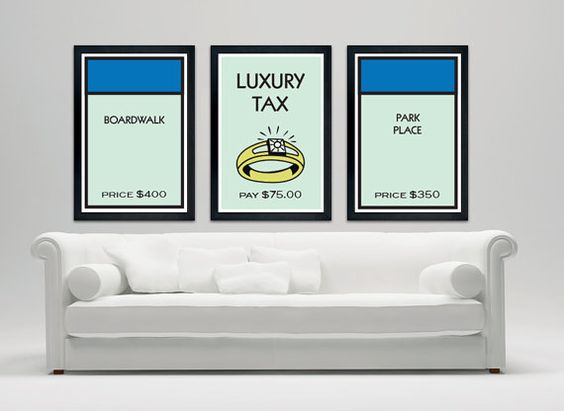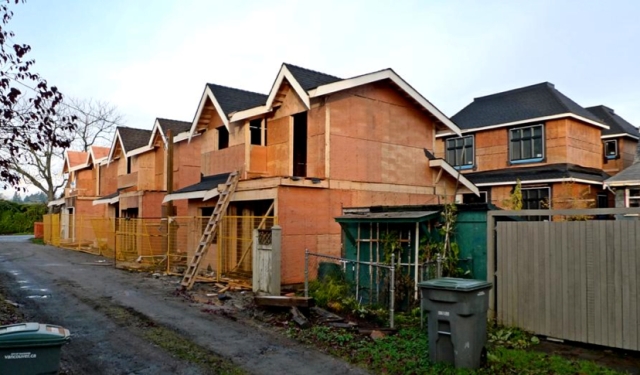
This article by Bloomberg News via Frances Bula says it all.While housing price increases went up by 40 per cent in the last year in Vancouver, there is a dearth of houses listed for sale. “What you see instead is the shortest list of homes for sale in almost a decade, even as the price of a typical single-family home surged to C$1.5 million ($1.1 million), about 20 times what the median household earns in a year”.
” Vancouver isn’t the only place in the world, or even in Canada, where house prices have soared beyond the reach of residents: it’s happening in the global economy’s poster-towns, like London and San Francisco, and in less-feted Auckland, Stockholm and Toronto too. A common thread that links such cities is curbs on the availability of land for building. Yet as the Vancouver boom turned into a crisis of affordability, and authorities moved to tackle the problem, housing supply wasn’t the direction they were looking”.
The approach in British Columbia was to pinch demand for housing by imposing a 15 per cent foreign-buyer tax on Vancouver property coupled with the tightening of restrictions on mortgage eligibility.While this cooled the market, it did not address the supply side, which is adding housing for affordability, economic job growth, and viability. As demand was capped, housing supply did not increase, moving Vancouver’s housing market towards “boutique” status-a nice place to hang out in, but pretty challenging to live in.
Director of the City Program Andy Yan noted that single family home ownership is “one of the highest paper-wealth vocations” in the City of Vancouver. While sales are down, prices are up on the east side of the city, and Mr. Yan does not see the foreign-buyer’s tax as limiting off shore sales. “It is more of a speed bump”.














Is single family housing really the metric we should be using for affordability? Why is that the only metric ever cited in these articles?
Even in their land supply comments, they treat SFD homes on 4,000 ft2 parcels as an average. Barcelona is not rife with high rises or sprawl, nor did they fill in the ocean to create more land for housing, port facilities excepted.
If a SFD on 4,000 ft2 of open land is worth over $3 million in Kits, how many orders of magnitude more would it be worth in Barcelona’s Eixample district equivalent? Four times? Eight times? Twenty times?
Affordability is relative. By the square metre, Vancouver’s land supply could be very affordable by Barcelona standards. At least they use it much more effectively. I checked one Barcelona real estate page with 10 listings in the Eixample area and found a good range between $C400K (75m2 / 810 ft2, 3 br + 2 bath) and $C875K (100 m2 / 1,070 ft2, 3 br, 3 bath top floor), not that far off from Vancouver’s condo prices. However, these units exist in a uniform 6-8 storey building mass along every streetscape, so a parcel the size of a Vancouver lot could contain 24 or more 100 m2 apartments stacked up, including circulation. At the low end of the above listings, the retail value of 24 apartments on one Vancouver lot would be $9.6 million. The high end would be $21 million.
Land affordability is a much bigger deal in Barcelona. But housing affordability with a greater quantity of apartments, even set in a city with great urbanism, appears to be relatively the same in some locations.
The question is not so much how we got where we are, as we are where we are, but how to go forward. Europe had affordability issues 200+ years ago and they decided to build as high as feasible, which essentially is 6-7 stories without an elevator. The elevator was only available in the 1870s or so. That is why you see 20+ stories in North America or Asia that essentially boomed only after 1900, except very few cities like New York perhaps that had high rises in the late 1800s.
What about today though ? I bet that a new ( mid rise )property in Barcelona isn’t all that much cheaper than Vancouver ! Even if Vancouver built like Barcelona – and we do I might add along the Camibie corridor with 6 story midrises – the price point is still around or over $1000/sq ft now. Only further out, with lower land prices, will you see lower price points. The only way for Vancouver proper to achieve affordability is to subsidize land, or by forcing developers to create affordable rentals by charging more for upper floor units.
A quick Google search reveals that Elisha Otis invented the elevator on 1852. But it wasn’t until the 1920s (mostly in NYC) that elevators truly rose to the top, so to speak.
Essentially, cities like Barcelona largely stuck with the human scale in terms of building height for the subsequent century and imposed the uniform Barcelona block across the majority of the city. (Sandy James discussed changes to the block pattern in a previous post.) That was a conscious planning decision that ended up not being pernicious though it was a blanket imposition, not unlike our suburbs and 70s Modernist towers. Barcelona is a success story despite some of these formulaic decisions largely because of the quality of the urban design and the architecture of individual buildings, not to mention its deep history.
I’m not sure about subsidizing land, but I do agree that we need a lot more stable long term rental housing to balance with the private condos, and tat needs to be accompanied by much greater diversity in housing type. My point above about land value is that Barcelona is more expensive than Vancouver’s RS zoned residential land on a per unit basis (m2, acre …). I would suggest that the Metro land base should also be accounted for as a levelling factor, as you correctly pointed out in several previous posts.
The realtor quoted in the East Side article offers a different assessment on his blog. His analysis is that buyers (foreign and speculative) are creating a demand problem. The demand isn’t for locals looking for housing, but rather others looking for investment tools:
http://vancitycondoguide.com/treating-symptoms-not-the-disease/
And interestingly the Globe & Mail also has a story showing that developers screamed to the government like scalded cats after the foreign buyer tax was introduced. It is clear developers were aware the projects they were building were not needed for local demand:
http://www.theglobeandmail.com/real-estate/vancouver/real-estate-developers-slammed-bc-over-surprise-foreign-buyer-tax-foi/article33306027/
On Twitter, Jens von Bergman does a takedown on the math used in this article also.
Author
Reblogged this on Sandy James Planner.
Is this article trying to claim we aren’t building enough houses or housing units? Last I checked Vancouver was churning out more housing units than much larger North American cities (Miami-Fort Lauderdale, Los Angeles, Atlanta, Seattle etc). So where are all those units going?
Vancouver churns out quite a few condos but they are are approaching or are over $1000/sq foot now. The main reason is land prices and low density. If you want to build a new even mid-rise tower you have to buy several SFH ( single family houses ) which inflates the risk, timelines and thus, end product price point. For that reason Vancouver proper will never ever be cheap again, even with more supply.
However, if you replace Vancouver with MetroVan ie include places like Surrey, New West or Maple Ridge, Mission even or Ladner it is quite a bit more affordable.
Missing is the debate about funding for rapid transit. Cities are keen to shift the blame to senior governments. Yet they could increase property taxes, reduce salaries & benefits of overpaid civil employees and/or tax residential parking on residential roads to fund required rapid public transit systems. The article forgot to mention that. See here http://www.torontosun.com/2016/12/08/it-pays-to-work-for-the-government-fraser-institute-review or here http://news.nationalpost.com/news/canada/canadian-politics/compensation-for-ontario-public-servants-has-skyrocketed-over-the-last-ten-years-of-liberal-rule-fraser-institute or here http://www.cfib-fcei.ca/english/article/7290-public-sector-workers-oped.html